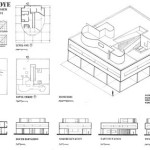Reading Electrical House Plans: Essential Aspects
Electrical house plans are crucial blueprints for designing, installing, and maintaining the electrical system of a house or building. They serve as a comprehensive roadmap, guiding electricians and homeowners alike through the intricacies of the electrical setup. Understanding these plans is essential for ensuring the safety and efficiency of your home's electrical system.
1. Symbols and Abbreviations
Electrical house plans rely on a standardized set of symbols and abbreviations to represent electrical components and connections. Familiarizing yourself with these symbols is paramount for deciphering the plan effectively. For instance, a circle with a cross inside represents a light fixture, while a wavy line denotes a wire.
2. Floor Plans
Floor plans provide a bird's-eye view of each level of the house, indicating the placement of rooms, walls, windows, and doors. They also show the location of electrical outlets, switches, and fixtures. Floor plans are vital for planning the distribution of electrical circuits and ensuring proper coverage throughout the home.
3. Lighting Plans
Lighting plans focus specifically on the lighting scheme of the house. They indicate the type and wattage of light fixtures in each room, as well as the location of switches and dimmers. Lighting plans optimize the functionality and ambiance of living spaces.
4. Power Plans
Power plans detail the distribution of power circuits throughout the house. They show the location of the main electrical panel, circuit breakers, and outlets. Power plans ensure safe and efficient distribution of electricity to all areas of the home.
5. Conduit and Wiring
Electrical plans specify the type and size of conduits and wires used in the system. Conduits protect the wires from damage and provide a safe pathway for electrical currents. Understanding the wiring details is crucial for proper installation and maintenance.
6. Load Calculations
Load calculations determine the electrical load requirements of the house. By calculating the total wattage of all electrical devices and appliances, electricians can ensure sufficient capacity in the electrical system to handle the anticipated load.
7. Grounding and Bonding
Grounding and bonding are essential for safety in electrical systems. Grounding provides a path for electrical faults to safely discharge, while bonding connects metal components to prevent electrical shocks. Understanding the grounding and bonding requirements is vital for creating a secure electrical environment.
Conclusion
Reading electrical house plans requires a combination of technical knowledge, attention to detail, and an understanding of electrical principles. By familiarizing yourself with the essential aspects outlined in this article, you can effectively interpret these plans and contribute to the safe and efficient functioning of your home's electrical system.

It S Electrical

How To Read Electrical Plans Construction Drawings Plan
Create An Electrical Plan Roomsketcher Help Center

Reading An Electrical Drawing Starts Here

How To Read Electrical Plans

How To Read Electrical Plans

Electrical Plan 101 Know Basics Of Edrawmax

Electrical Plan 101 Know Basics Of Edrawmax

How To Draw An Electrical Plan With Roomsketcher

Electrical Blueprint Symbols








